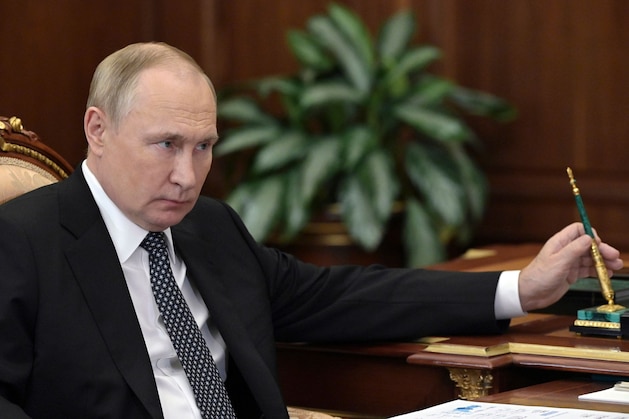Desirable as a Ukrainian victory would be, a Russian loss could have drastic consequences and destabilize the entire region. But how does Russia even define a war defeat?
The front lines in the Ukraine war have hardly changed in recent weeks. Both sides are currently engaged in a static war of attrition. However, the Ukrainian leadership is officially assuming an imminent Russian offensive in a few weeks.
However, it is questionable whether the Russian army is really strong enough to carry out a new offensive. There will definitely be a Ukrainian offensive in a few weeks, most likely against the southern Ukrainian city of Melitopol towards the Sea of Azov.
The probability of successful Ukrainian offensives naturally increases with the delivery of armored personnel carriers, soon probably also of main battle tanks and long-range artillery. Although this will not automatically result in military successes for the Ukrainian army, the probability is significantly increasing.
So can Russia lose the war against Ukraine? First of all, the answer to the question depends on how Russia will define a war defeat. Is the reconquest of the regions occupied by the Russian army since February 24 classified as a defeat? Or will the disastrous defeat only be achieved when Russia also loses the territories occupied since 2014, including Crimea?
In the first scenario, a disgraceful defeat of Russia can be assumed; in the case of the second scenario, the defeat would be catastrophic. But what would such a defeat in Russia do?
Should Russian troops have to withdraw completely from Ukraine, Putin’s replacement would probably be unavoidable. The only question is how this transfer could take place. By resigning voluntarily, not running again for the presidency in 2024, or by the overthrow of Putin by representatives of the innermost circle of power. Depending on this, the political stability caused by the transfer will be more or less severe. The palace revolt is certainly the most dangerous scenario. Who would take over instead of Putin?
Secretary of the Security Council Patrushev, director of the domestic intelligence service FSB Bortnikov, or representatives of a younger generation such as the governor of the Tula region Alexander Dyumin? As much as many would like Putin’s loss of power, it is important to note the considerable instability that this would trigger. The scenario of a person taking power who wants to fundamentally improve relations with the West is rather small.
Bloodlands
If Putin remains president despite a defeat and is confirmed in office in 2024, that will probably mean the long-term isolation of Russia. As long as Putin holds power, there will be no return to business as usual.
The military defeat in Ukraine will also massively shake Russia’s authority as a guarantor of stability in the post-Soviet space. Russia’s loss of authority as a result of the protracted war is already having an impact on the South Caucasus and Central Asia. After a disastrous defeat, Russia would certainly no longer be able to be an anchor of stability in these regions.
In many cases this is no longer the case – for example in the conflict between Armenia and Azerbaijan or in the ongoing border conflict between Tajikistan and Kyrgyzstan. This will lead to a foreign policy reorientation of post-Soviet states. This could also result in new military conflicts in the South Caucasus or Central Asia.
In the event of a disastrous defeat, Russia’s status as a great power would also falter. By supporting Ukraine, the US can weaken rival Russia in the long run. That would allow the US to focus almost entirely on systemic rival China. Russia’s ability to exercise countervailing powers with respect to the current international order would be significantly reduced. A complete defeat would certainly reduce Russia’s weight in international politics.
Russia, weakened in this way, would become clearly dependent on China. That would significantly change the existing strategic partnership between the two states. As long as hostility between Russia and the West persists, Chinese foreign policy will benefit.
You don’t have to fear that Russia will join the West against China in the next few years. The probability of this is already extremely low, but after a defeat in the war without regime change in Russia this option would disappear entirely.
Some observers also fear or hope that a war defeat will lead to the collapse of Russia’s state integrity. The country could fall apart. However, this is a scenario that would entail significant security risks. Is the risk of the world’s largest nuclear power falling apart acceptable? As much as some wish for it, it is unlikely for the author.
The greatest risk, however, is that Russia would escalate the violent conflict to nuclear levels in order to avert a disastrous war defeat, especially if the Ukrainian army tried to recapture Crimea. This residual risk must certainly be taken into account when thinking about how badly Russia should lose the Ukraine war.
Gerhard Mangott is a professor of political science with a special focus on international relations and security in the post-Soviet space. He teaches at the Institute for Political Science in Innsbruck and is a lecturer at the Diplomatic Academy in Vienna















